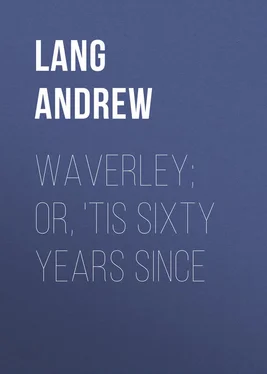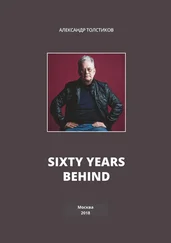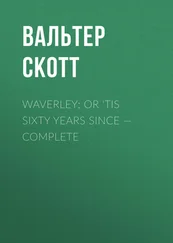Andrew Lang - Waverley; Or, 'Tis Sixty Years Since
Здесь есть возможность читать онлайн «Andrew Lang - Waverley; Or, 'Tis Sixty Years Since» — ознакомительный отрывок электронной книги совершенно бесплатно, а после прочтения отрывка купить полную версию. В некоторых случаях можно слушать аудио, скачать через торрент в формате fb2 и присутствует краткое содержание. Издательство: Иностранный паблик, Жанр: foreign_antique, foreign_prose, на английском языке. Описание произведения, (предисловие) а так же отзывы посетителей доступны на портале библиотеки ЛибКат.
- Название:Waverley; Or, 'Tis Sixty Years Since
- Автор:
- Издательство:Иностранный паблик
- Жанр:
- Год:неизвестен
- ISBN:нет данных
- Рейтинг книги:4 / 5. Голосов: 1
-
Избранное:Добавить в избранное
- Отзывы:
-
Ваша оценка:
- 80
- 1
- 2
- 3
- 4
- 5
Waverley; Or, 'Tis Sixty Years Since: краткое содержание, описание и аннотация
Предлагаем к чтению аннотацию, описание, краткое содержание или предисловие (зависит от того, что написал сам автор книги «Waverley; Or, 'Tis Sixty Years Since»). Если вы не нашли необходимую информацию о книге — напишите в комментариях, мы постараемся отыскать её.
Waverley; Or, 'Tis Sixty Years Since — читать онлайн ознакомительный отрывок
Ниже представлен текст книги, разбитый по страницам. Система сохранения места последней прочитанной страницы, позволяет с удобством читать онлайн бесплатно книгу «Waverley; Or, 'Tis Sixty Years Since», без необходимости каждый раз заново искать на чём Вы остановились. Поставьте закладку, и сможете в любой момент перейти на страницу, на которой закончили чтение.
Интервал:
Закладка:
“Woe to the coward, that ever he was born,
Who did not draw the sword before he blew the horn!”
At the same time a whirlwind of irresistible fury howled through the long hall, bore the unfortunate horse-jockey clear out of the mouth of the cavern, and precipitated him over a steep bank of loose stones, where the shepherds found him the next morning with just breath sufficient to tell his fearful tale, after concluding which he expired.
This legend, with several variations, is found in many parts of Scotland and England. The scene is sometimes laid in some favourite glen of the Highlands, sometimes in the deep coal-mines of Northumberland and Cumberland, which rim so far beneath the ocean. It is also to be found in Reginald Scott’s book on Witchcraft, which was written in the sixteenth century. It would be in vain to ask what was the original of the tradition. The choice between the horn and sword may, perhaps, include as a moral that it is foolhardy to awaken danger before we have arms in our hands to resist it.
Although admitting of much poetical ornament, it is clear that this legend would have formed but an unhappy foundation for a prose story, and must have degenerated into a mere fairy tale. Dr. John Leyden has beautifully introduced the tradition in his “Scenes of Infancy”: —
“Mysterious Rhymer, doomed by fate’s decree
Still to revisit Eildon’s fated tree,
Where oft the swain, at dawn of Hallow-day,
Hears thy fleet barb with wild impatience neigh, —
Say, who is he, with summons long and high,
Shall bid the charmed sleep of ages fly,
Roll the long sound through Eildon’s caverns vast,
While each dark warrior kindles at the blast,
The horn, the falchion, grasp with mighty hand,
And peal proud Arthur’s march from Fairy-land?”
In the same cabinet with the preceding fragment, the following occurred among other ‘disjecta membra’. It seems to be an attempt at a tale of a different description from the last, but was almost instantly abandoned. The introduction points out the time of the composition to have been about the end of the eighteenth century.
THE LORD OF ENNERDALE
“Fill a bumper,” said the knight; “the ladies may spare us a little longer. Fill a bumper to the Archduke Charles.”
The company did due honour to the toast of their landlord.
“The success of the archduke,” said the muddy vicar, “will tend to further our negotiation at Paris; and if – ”
“Pardon the interruption, Doctor,” quoth a thin, emaciated figure, with somewhat of a foreign accent; “but why should you connect those events, unless to hope that the bravery and victories of our allies may supersede the necessity of a degrading treaty?”
“We begin to feel, Monsieur L’Abbe,” answered the vicar, with some asperity, “that a Continental war entered into for the defence of an ally who was unwilling to defend himself, and for the restoration of a royal family, nobility, and priesthood who tamely abandoned their own rights, is a burden too much even for the resources of this country.”
“And was the war, then, on the part of Great Britain,” rejoined the Abbe, “a gratuitous exertion of generosity? Was there no fear of the wide-wasting spirit of innovation which had gone abroad? Did not the laity tremble for their property, the clergy for their religion, and every loyal heart for the Constitution? Was it not thought necessary to destroy the building which was on fire, ere the conflagration spread around the vicinity?”
“Yet if upon trial,” said the doctor, “the walls were found to resist our utmost efforts, I see no great prudence in persevering in our labour amid the smouldering ruins.”
“What, Doctor,” said the baronet, “must I call to your recollection your own sermon on the late general fast? Did you not encourage us to hope that the Lord of Hosts would go forth with our armies, and that our enemies, who blasphemed him, should be put to shame?”
“It may please a kind father to chasten even his beloved children,” answered the vicar.
“I think,” said a gentleman near the foot of the table, “that the Covenanters made some apology of the same kind for the failure of their prophecies at the battle of Danbar, when their mutinous preachers compelled the prudent Lesley to go down against the Philistines in Gilgal.”
The vicar fixed a scrutinizing and not a very complacent eye upon this intruder. He was a young man, of mean stature and rather a reserved appearance. Early and severe study had quenched in his features the gaiety peculiar to his age, and impressed upon them a premature cast of thoughtfulness. His eve had, however, retained its fire, and his gesture its animation. Had he remained silent, he would have been long unnoticed; but when he spoke, there was something in his manner which arrested attention.
“Who is this young man?” said the vicar, in a low voice, to his neighbour.
“A Scotchman called Maxwell, on a visit to Sir Henry,” was the answer.
“I thought so, from his accent and his manner,” said the vicar. It may be here observed that the Northern English retain rather more of the ancient hereditary aversion to their neighbors than their countrymen of the South. The interference of other disputants, each of whom urged his opinion with all the vehemence of wine and politics, rendered the summons to the drawing-room agreeable to the more sober part of the company.
The company dispersed by degrees, and at length the vicar and the young Scotchman alone remained, besides the baronet, his lady, daughters, and myself. The clergyman had not, it would seem, forgot the observation which ranked him with the false prophets of Dunbar, for he addressed Mr. Maxwell upon the first opportunity.
“Hem! I think, sir, you mentioned something about the civil wars of last century. You must be deeply skilled in them indeed, if you can draw any parallel betwixt those and the present evil days, – davs which I am ready to maintain are the most gloomy that ever darkened the prospects of Britain.”
“God forbid, Doctor, that I should draw a comparison between the present times and those you mention; I am too sensible of the advantages we enjoy over our ancestors. Faction and ambition have introduced division among us; but we are still free from the guilt of civil bloodshed, and from all the evils which flow from it. Our foes, sir, are not those of our own household; and while we continue united and firm, from the attacks of a foreign enemy, however artful, or however inveterate, we have, I hope, little to dread.”
“Have you found anything curious, Mr. Maxwell, among the dusty papers?” said Sir Henry, who seemed to dread a revival of political discussion.
“My investigation amongst them led to reflection’s which I have just now hinted,” said Maxwell; “and I think they are pretty strongly exemplified by a story which I have been endeavouring to arrange from some of your family manuscripts.”
“You are welcome to make what use of them you please,” said Sir Henry; “they have been undisturbed for many a day, and I have often wished for some person as well skilled as you in these old pothooks, to tell me their meaning.”
“Those I just mentioned,” answered Maxwell, “relate to a piece of private history savouring not a little of the marvellous, and intimately connected with your family; if it is agreeable, I can read to you the anecdotes in the modern shape into which I have been endeavouring to throw them, and you can then judge of the value of the originals.”
There was something in this proposal agreeable to all parties. Sir Henry had family pride, which prepared him to take an interest in whatever related to his ancestors. The ladies had dipped deeply into the fashionable reading of the present day. Lady Ratcliff and her fair daughters had climbed every pass, viewed every pine-shrouded ruin, heard every groan, and lifted every trap-door, in company with the noted heroine of “Udolpho.” They had been heard, however, to observe that the famous incident of the Black Veil singularly resembled the ancient apologue of the Mountain in labour, so that they were unquestionably critics, as well as admirers. Besides all this, they had valorously mounted en croupe behind the ghostly horseman of Prague, through all his seven translators, and followed the footsteps of Moor through the forest of Bohemia. Moreover, it was even hinted (but this was a greater mystery than all the rest) that a certain performance, called the “Monk,” in three neat volumes, had been seen by a prying eye, in the right-hand drawer of the Indian cabinet of Lady Ratcliff’s dressing-room. Thus predisposed for wonders and signs, Lady Ratcliff and her nymphs drew their chairs round a large blazing wood-fire, and arranged themselves to listen to the tale. To that fire I also approached, moved thereunto partly by the inclemency of the season, and partly that my deafness, which you know, cousin, I acquired during my campaign under Prince Charles Edward, might be no obstacle to the gratification of my curiosity, which was awakened by what had any reference to the fate of such faithful followers of royalty as you well know the house of Ratcliff have ever been. To this wood-fire the vicar likewise drew near, and reclined himself conveniently in his chair, seemingly disposed to testify his disrespect for the narration and narrator by falling asleep as soon as he conveniently could. By the side of Maxwell (by the way, I cannot learn that he is in the least related to the Nithsdale family) was placed a small table and a couple of lights, by the assistance of which he read as follows: —
Читать дальшеИнтервал:
Закладка:
Похожие книги на «Waverley; Or, 'Tis Sixty Years Since»
Представляем Вашему вниманию похожие книги на «Waverley; Or, 'Tis Sixty Years Since» списком для выбора. Мы отобрали схожую по названию и смыслу литературу в надежде предоставить читателям больше вариантов отыскать новые, интересные, ещё непрочитанные произведения.
Обсуждение, отзывы о книге «Waverley; Or, 'Tis Sixty Years Since» и просто собственные мнения читателей. Оставьте ваши комментарии, напишите, что Вы думаете о произведении, его смысле или главных героях. Укажите что конкретно понравилось, а что нет, и почему Вы так считаете.












